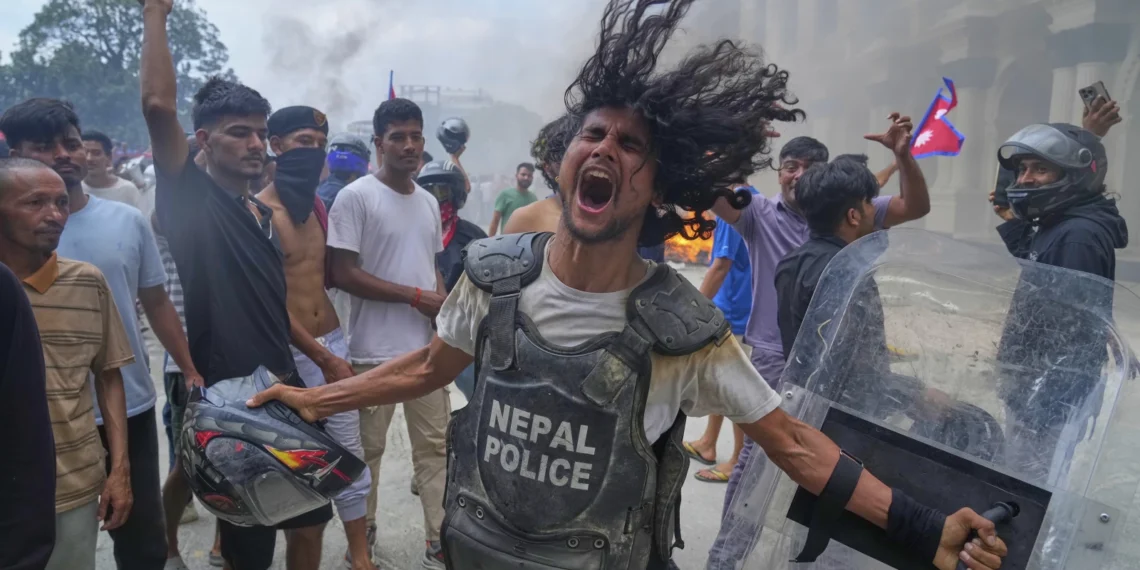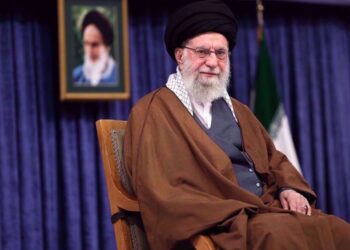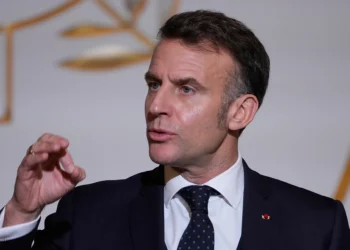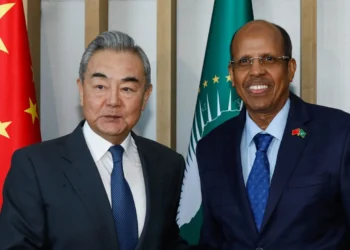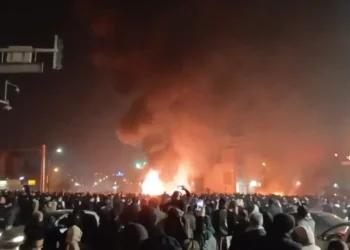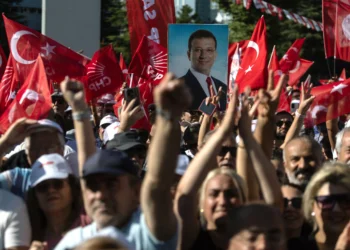KATHMANDU (Realist English). Protests in Nepal against a now-lifted social media ban escalated dramatically on Tuesday, with demonstrators torching government buildings and politicians’ homes, attacking senior leaders, and forcing Prime Minister Khadga Prasad Oli to resign.
The resignation, accepted by President Ram Chandra Poudel, had little effect on the unrest. Tens of thousands of people remained on the streets of Kathmandu late into the evening, blocking roads and storming government offices. Army helicopters were deployed to evacuate ministers to safe locations.
The violence followed Monday’s protests, led largely by young people angered by the blocking of Facebook¹, X and YouTube, during which police opened fire, killing 19 people. Although the ban was lifted Tuesday, anger over the deaths and wider accusations of corruption continued to fuel the demonstrations.
Protesters chanted “Stop the ban on social media. Stop corruption, not social media” as they stormed the Singha Durbar government complex. Local media reported that the prime minister’s residence, the presidential palace and several ministers’ homes were set ablaze. Former prime minister and Nepali Congress leader Sher Bahadur Deuba and his wife, Foreign Minister Arzu Rana Deuba, were beaten by crowds and seen bleeding in videos shared online.
Oli announced in a final statement that a committee would investigate the police shootings within 15 days and promised compensation for victims’ families as well as free medical care for the wounded. But calls for his ouster only grew. “We are here because our friends are being killed. Justice must be done and this regime removed,” said protester Narayan Acharya outside parliament.
The unrest reflects deeper frustrations beyond the social media ban. With youth unemployment near 20 percent and more than 2,000 young Nepalese leaving daily to work abroad, resentment toward the country’s political elite — and their so-called “nepo kids” enjoying privileged lifestyles — has fueled the protests, dubbed the “Gen Z uprising.”
International leaders voiced concern. U.N. Secretary-General António Guterres called for restraint, an investigation and dialogue to prevent further escalation. Nepal’s army chief Ashok Raj Sigdel urged protesters in a video message to end the demonstrations to avoid more bloodshed, while the army later warned it was ready to preserve law and order if necessary.
The social media restrictions were part of a proposed bill requiring platforms to register locally and appoint liaison offices, which rights groups condemned as censorship. TikTok, Viber and several other platforms had complied, but Google, Meta² and X did not.
The turmoil has underscored both the fragility of Nepal’s political system and the explosive frustrations of its younger generation.
¹ Facebook has been blocked in Russia since March 2022 following the conflict in Ukraine
² In Russia, Meta Platforms Inc. (which owns Facebook and Instagram) has been designated an extremist organization and its activities are banned


